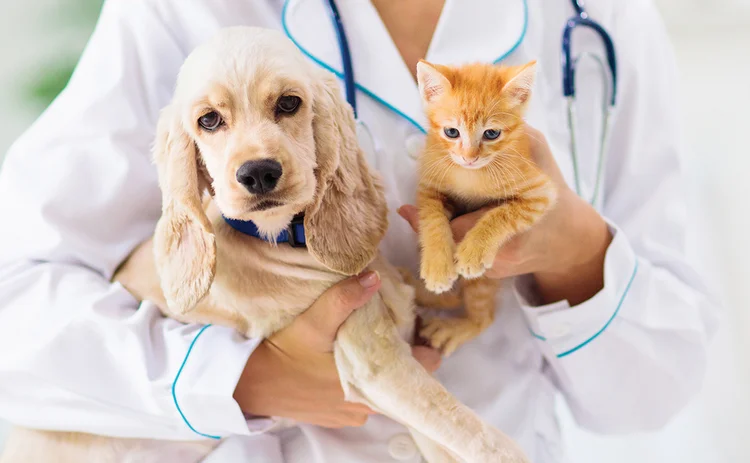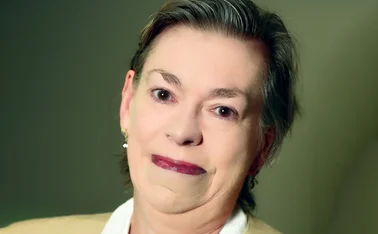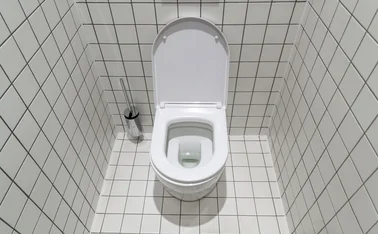
Analysis: Protecting pets

Need to know
- 7.7 million pet insurance customers in the UK, with insurers paying out £815m last year, mainly to cover veterinary bills, double what was paid out ten years ago
- The Association of British Insurers has outlined four Covid-19 pet insurance pledges for its members
- The Royal College of Veterinary Surgeons Code of Professional Conduct now allows veterinary surgeons to prescribe veterinary medicines (POM-Vs) without a physical examination of the animal
- 9 in 10 vet practices (including those in the UK) were reporting a negative impact on the number of appointments offered
Over the past decade, the UK’s pet insurance market has seen substantial growth with 7.7 million pet insurance customers in the country. But amid so much uncertainty due to the Covid-19 pandemic, what reassurances are insurers providing to customers who might be concerned about how they can continue to safely protect the health of their pets?
There is no doubt the pandemic has created widespread fear and panic among the global population. For many people it has become something of a minefield to know how they can protect themselves, and for some, their pets, as they learn more about the impact of Covid-19 on animals and humans.
Although extensive research hasn’t been carried out in this area, as the virus is relatively new, both domestic and wild animals have been found to be susceptible to Covid-19. In recent months, a tiger tested positive for the coronavirus at Bronx Zoo in New York, after being infected by an asymptomatic zoo keeper, according to a Reuters report.
Paul Calle, chief veterinarian at the Bronx Zoo, told the news agency: “This is the first time that any of us know of anywhere in the world that a person infected the animal and the animal got sick.”
It was also reported six other big cats at the zoo were also thought to have been infected after showing coronavirus symptoms, such as a dry cough.
In April, reports surfaced that two pet cats tested positive for the virus in New York. There have also been other cases reported globally where domestic animals have been infected with the virus, which has caused a great deal of concern among pet owners.
Since the Covid-19 lockdown measures were put in place, cat owners in the UK crashed the British Veterinary Association’s website after it appeared to suggest the country’s estimated 10.9 million cats should be on curfew during the pandemic.
Following the incident, the association clarified that only cat owners who are self-isolating with symptoms of coronavirus should keep their pets indoors, after a study found cats can spread the virus.
With these reported cases and others, all this begs the question how has the Covid-19 outbreak affected the pet insurance industry and how are insurers dealing with the crisis?
A flexible approach
In light of the current pandemic, professional bodies for the industry are ensuring the right measures are being put in place, while insurers have stepped up to the plate.
President of the British Veterinary Association, Daniella Dos Santos, says vet practices across the UK are continuing to provide essential care for animals during the lockdown in line with government advice on social distancing.
“Many vet practices have switched triaging cases over the phone, offering video consults where possible, and having measures in place to ensure animals can be handed over safely without contact,” says Santos.
“Barring exceptions, pet owners should expect all non-essential procedures to be delayed, and others such as vaccinations and neutering to be available only on a case-by-case basis, in accordance with the vet’s clinical judgement.”
The BVA has received an assurance from the Association of British Insurers that its pet insurance members will support customers through a number of commitments during this fight against coronavirus. The association’s latest figures reveal insurers paid £815m last year, mainly to cover veterinary bills, double what was paid out 10 years ago.
Association of British Insurers’ Covid-19 Pet insurance pledges
1. Support those who need to make a claim
Insurers have implemented business continuity plans and work closely with service providers to do everything possible in these challenging circumstances to continue to handle claims and support their customers.
2. Work with vets to help customers
Insurers recognise that access to veterinary surgeries is limited and have agreed that being unable to access veterinary surgeries in person due to Covid-19 restrictions will not invalidate your policy. Insurers will work with veterinary practitioners to do all they can to ensure pets receive the treatment they need now and in the future.
3. Provide support if your pet needs a vaccination or health check
Insurers have agreed to provide support to customers wherever they can to ensure pets receive the care they need including by being flexible on policy conditions, in particular the requirement for pets to have up to date vaccinations and regular dental examinations.
4. Ensure that customers are provided with, or directed to, the most up-to-date information around the Covid-19 outbreak and publish clear information around the effects, if any, of the outbreak on customers policies through frequently asked questions and direct communications.
It’s clear that insurers now more than ever play a key role in ensuring customers can protect the health of their pets. According to Mark Shepherd, assistant director and head of general insurance policy, at the ABI, the association’s pet insurance members are taking a flexible approach in response to the current crisis.
“[Pet insurers] will be flexible on policy requirements for certain routine check-ups or vaccinations, where it may not be possible to access veterinary services because of Covid-19,” says Shepherd.
“They also want to ensure that pet owners can still access any vital vet treatment that may be needed and will work with customers to help support this.”
Francis Martin, The Insurance Emporium’s CEO confirmed that since the start of the outbreak, in addition to meeting the ABI’s four pledges, the insurer has been reviewing all its pet insurance processes “as a matter of priority” and acknowledges that because of the current restrictions on veterinary services there is a possibility that insured cases might run out of cover on 12 month policies before treatment has started.
“Customers don’t need any additional stress at what is already a difficult time so, as a business, we have agreed a 90-day reviewable extension to the policy term,” says Martin.
“This extension is only applicable on treatment or operations that have been delayed because of reasons relating to Covid-19, and provided all premiums are paid and up to date.”
Lucy Broadbridge, pet underwriting manager at LV General Insurance, says the insurer has taken action by providing its customers with access to First Vet, a free digital vet service to receive non-emergency consultations with a qualified vet, and has also ensured other supportive measures are put in place.
“We are reassuring our customers by allowing a six month grace period to get annual vaccinations completed, while emphasising the importance of following this up with their vets as soon as they can,” explains Broadbridge.
“For new policies we are not insisting that the animal has to been seen by a vet in the past 12 months, and we are offering mid-term down grade options for owners who are finding the premiums too expensive.”
Broadbridge adds: “If a pet were to contract a virus it would be covered for treatment in the same way as any illness subject to terms and conditions of the policy.”
The new normal
While many industries have adapted to ‘the new normal’ during the Covid-19 pandemic, so has the insurance industry.
A recent industry report by CM Research, The Coronavirus Survey Wave 2 – What is the impact of Covid-19 on veterinary professionals and their practices revealed 86% of practice respondents from the UK were providing services remotely, according to Gary Davess, director of personal and speciality lines at Petplan, who explains this is not usually the case.
Davess says: “Under normal circumstances the Royal College of Veterinary Surgeons Code of Professional Conduct does not allow veterinary surgeons to prescribe veterinary medicines (POM-Vs) without a physical examination of the animals having first taken place.
“However, RCVS Council has decided that there should be temporary departure from this position where it is appropriate to do so under the current exceptional circumstances.”
According to Iain Howie, managing director, life, health and travel at Verisk Underwriting, UK and Europe, since the lockdown there has been greater interest in pet ownership.
However, he highlights customers may be unable to obtain cover that is fit-for-purpose. “Veterinary services are more limited, and insurers may struggle to support new insurance applicants given the lockdown measures in place,” explains Howie. So how are insurers able to ensure they still meet their customers’ needs?
“One of the ways Verisk supports pet insurers is through the Pet Black Box, a medical risk assessment tool that allows insurers to present insurance applicants with suitable coverage options based on the declared pre-existing conditions of their pets,” says Howie.
“Since the lockdown restrictions were announced, pet rescue and re-homing charities have reported a higher number of adoptions of cats and dogs. Many rescue animals can have pre-existing conditions, which are often excluded from cover.
“The Pet Black Box guides customers through a series of simple questions about their pet’s conditions and then generates a pet risk score that can be used to efficiently underwrite policies at the point of sale.”
Despite all the disruption caused by the pandemic, some insurers will find the impact to be minimal in some areas of their business.
Brief cancellation spike
Simon Wheeler, managing director at Agria Pet Insurance, says: “We were able to transfer all of our operations from our offices in Aylesbury to the homes of our team members – with no interruption to business as usual.”
“We noticed an initial, brief spike in policy cancellation; however, this soon settled and was minimised due to the extra support we are offering customers with payment holiday options.”
Wheeler explains before the lockdown restrictions were in place, veterinary practices would often offer free insurance for puppies and kittens when they’re seen for primary vaccinations. “With many of these appointments being postponed, Agria Pet Insurance has introduced a new four weeks free insurance product that owners can set up themselves online,” says Wheeler.
“This ensures owners don’t miss out on a free period of cover for their pet, and that the percentage of pets protected by insurance doesn’t drop, even when appointments are missed.”
He adds: “While our phone lines have remained open as usual, we have seen a marked uplift in activity on the web. This has been supported by the early release of Livechat, which is helping many of our customers – especially vulnerable customers who prefer not to use the phone.
“Rightly or wrongly, there has been a notable increase in demand for puppies, in particular, while families are in lockdown. This has seen policy sales remain strong.”
Short-term impact
Broadbridge says it’s too early to see any impact on the pet insurance market “but speculatively we may see impacts such as increase in digital consultations, increase in acute cases as vets are not seeing the animal until the condition is serious and an uptick in claims for boarding fees as owners may be taken to hospital if poorly”.
Steven Mendel, CEO and co-founder of Bought By Many, agrees, he says the full impact of the coronavirus outbreak on businesses and the economy are yet to be felt.
“The pet insurance industry remains largely unaffected. It is possible that with more time to focus on personal finance, some pet owners will be considering their current pet insurance policies, switching to other providers which suit their needs and some will be thinking about insurance for the first time.”
However, Mendel believes a number of insurance firms that specialise in different areas may have failed to live up to expectations during the pandemic. “While businesses and consumers are looking to insurers for support during this time, some are unable to take calls or are hiding behind clauses to not pay out during a time of great need,” says Mendel.
Appointments offered
Ross Hallifax, director at Purely Pets, argues for customers under financial pressure pet insurance might not be their primary concern: “At a time where financial worry may be impacting many people for a variety of reasons, an emotive product such as pet insurance could be something customers see as an outgoing they can reduce or even cancel. In turn, this could lower the population of insured pets and put further financial strain on customers in the event of a large unexpected veterinary bill.”
The Coronavirus Survey Wave 2 report also highlighted more than nine in 10 vet practices (including those in the UK) were reporting a negative impact on the number of appointments offered, according to Davess. “Veterinary medicine and pet insurance are intrinsically linked so reduced interactions in practices may also reduce awareness and demand for pet insurance.”
Davess explains that customers’ policies have been amended in light of the pandemic and will remain that way until the UK lockdown is lifted, including cover for when a pet is outside the UK in an European Union country. “This is normally limited to 90 days per year but given the current situation we’ve extended this until 14 days after the lockdown in the country is lifted.This ensures the pet is still covered while the owner arranges the trip home.”
He adds: “It would be exceptionally rare for a pet to become unwell with Covid-19 however, if they did we would cover the cost of veterinary treatment in-line with our usual policy terms and conditions as we would for any other virus or infection.”
Hallifax says that policies will cover customers in the event that they’re stuck abroad. “Purely Pets have pledged that during the Covid-19 pandemic, if a customer has their pet insured with them – cover will remain in force in the event of an unexpected delay in returning to the UK.”
Only users who have a paid subscription or are part of a corporate subscription are able to print or copy content.
To access these options, along with all other subscription benefits, please contact info@postonline.co.uk or view our subscription options here: http://subscriptions.postonline.co.uk/subscribe
You are currently unable to print this content. Please contact info@postonline.co.uk to find out more.
You are currently unable to copy this content. Please contact info@postonline.co.uk to find out more.
Copyright Infopro Digital Limited. All rights reserved.
You may share this content using our article tools. Printing this content is for the sole use of the Authorised User (named subscriber), as outlined in our terms and conditions - https://www.infopro-insight.com/terms-conditions/insight-subscriptions/
If you would like to purchase additional rights please email info@postonline.co.uk
Copyright Infopro Digital Limited. All rights reserved.
You may share this content using our article tools. Copying this content is for the sole use of the Authorised User (named subscriber), as outlined in our terms and conditions - https://www.infopro-insight.com/terms-conditions/insight-subscriptions/
If you would like to purchase additional rights please email info@postonline.co.uk








